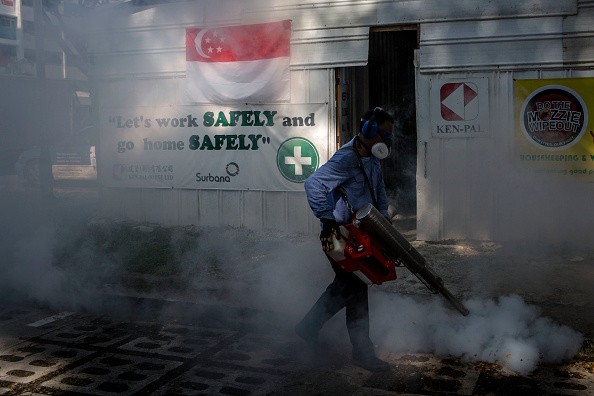Singapore officials confirmed 27 new cases of locally transmitted Zika infection on Sunday. This increased the number of cases to a total of 242.
According to the Ministry of Health (MOH) and National Environment Agency (NEA), the 25 new cases were linked to the area where the first outbreak had happened. The other one was linked to a new possible cluster and the other one had no known links to any existing cluster, Channel News Asia reported.
NEA has been working with vector control operations in the Aljunied Crescent/ Sims Drive/ Kallang Way/ Paya Lebar Way cluster. According to the agency, they have detected and destroyed 62 breeding habitats in the area as of Sept. 3. These habitats were found in 36 homes and in 26 public areas.
There are also 39 breeding habitats that have been detected and destroyed in Bedok North Avenue cluster in the effort of the agency in conducting vector control operations. Twenty nine are found in homes and 10 from public areas. They will be carrying out vector control operations at the potential new cluster in the the Joo Seng Road area.
According to the analyst, the virus came from the Asian lineage and possibly evolved from the strain that was already moving around Southeast Asia. The virus from the two patients does not come from South America, as reported by Reuters.
Meanwhile, Malaysian health ministry said on Saturday that it had detected the country's first locally transmitted Zika infection in a 61-year-old man from Sabah. The virus was initially identified in Uganda in 1947. It reached the Americas in 2014.
Zika is currently hitting a large parts of Latin America along with the Caribbean and Brazil, presently has the largest impact. The virus causes microcephaly - a birth defect that affects the brain growth - to new born babies when their mother got infected. Also, the virus has been linked to other neurological disorders particularly the Guillain-Barre, a rare neurological syndrome the affects the adults who are infected with Zika.
This video tells how fast the Zika is spreading in Singapore:



























